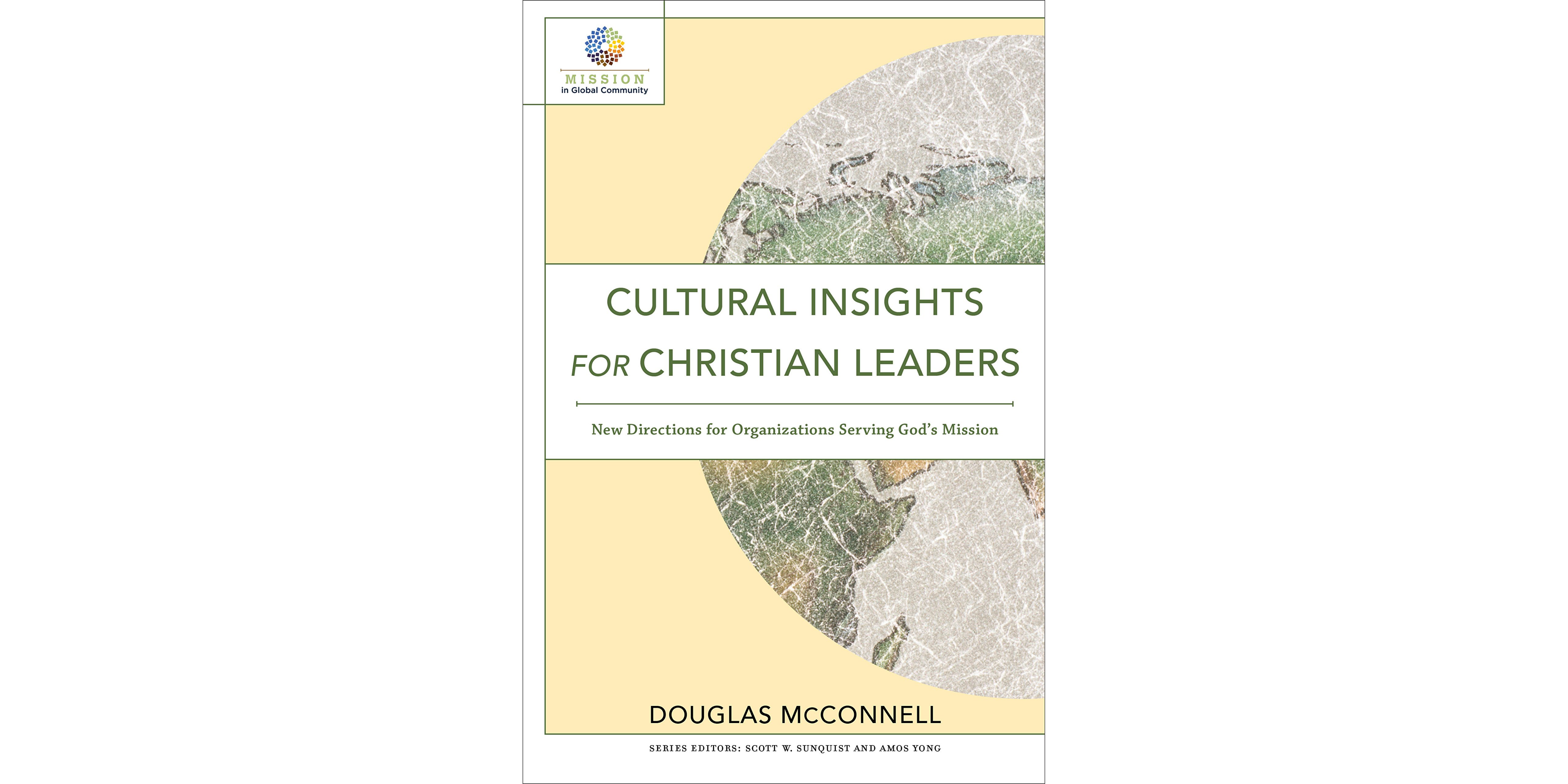By Douglas McConnell
Grand Rapids, MI: Baker Academic (2018)
Paperback, 200 pages
Reviewed by DAVID K. PENNO
“What are we learning about culture that will help shape, catalyze, and propel our organizations missionally” (p. xiv)? This is the focus of Douglas McConnell in his book Cultural Insights for Christian Leaders. Taking ideas from leadership and organizational studies, psychology, anthropology, and the Bible, the author states that Christian leaders in the globalized church must learn about and be able to address the “effects of culture on organizations and leadership, particularly on the organizational mission in relation to God’s mission” (p. xiv).
Douglas McConnell is a professor of Leadership and Intercultural Studies at Fuller theological Seminary, where he has also served in the past as the Dean of the School of Intercultural Studies and the Provost.
The first seven chapters each describe a primary concept that “relate[s] to the role of leaders of organizations serving God’s mission” (p. xviii), while the last chapters provide a useful summary. These seven chapters each provide a case study that effectively illustrates the concept being discussed.
A brief description of each of these primary concepts is given below. Organizations must think missionally, relating their mission to the Missio Dei “to think missiologically about organizations is to consider their significant contribution, in all that they are and do, in relation to the mission of God” (p. 22). But our understanding of the mission, and the best ways to pursue that mission, are affected by culture. Leaders must understand the cultures that are impacting the organization. Therefore, “a careful review of the cultural context should be an integral part of every decision” (p. 186).
Leaders must also understand the interdependence of human nature and culture, and that culture is constantly evolving. McConnell describes how culture is learned, how it interacts with human nature, and how organizations can use this knowledge to bring people of various backgrounds into a common organizational culture that facilitates its mission.
Leaders must see everyone, members of the organization and others from various cultures, as people all created in God’s image. This can happen as we listen to their stories and develop genuine relationships of love with them. This enables us to have sincere empathy for them, which enhances the fulfillment of the mission.
To do this, leaders must learn about other cultures, not superficially, but through imitation, by experiencing the culture through its rituals, language, and customs. Also, observing how respected leaders in the culture behave, how they treat others, and even how they dress for various occasions will help one learn how to lead in the culture in a fundamental way.
As a leader, authority must be exercised appropriately, always keeping in tension the use of silence and decisive action. Authority should never be exercised without reference to accountability and responsibility. And trust must always be carefully stewarded and cultivated in the organization.
Leaders in the church today must recognize four major “worlds” that members of the organization live in: religious, societal, organizational, and subcultural. This requires “maintaining a learner posture” (p. 192) studying these four areas of human life as they relate to those we serve.
Finally, leaders in the church must understand humans as an intersection of systems, “a ‘system within systems.’” “We must take this interdependence of systems into account when exegeting humans and their contexts” (p. 156). Leaders must comprehend the spiritual, cultural, technological, physical, personal, and social systems that make up the experience of people.
Taken together, the seven primary concepts that McConnell discusses in this work can equip Christian leaders to serve in the diverse church of today. His insights from culture that can guide leaders as they move the organization missionally speak against the great man theory of leadership, requiring participative and shared leadership approaches. For example, in the discussion of authority in chapter 5, it is clear that the leader must share authority with others.
In chapter 7 the author discusses the GLOBE project. The nine dimensions of culture that the study identified (p. 165) are valuable for understanding cultural diversity in the church. Additionally, the six global leadership dimensions (p. 168) from the GLOBE findings are useful for assessing one’s own leadership style and that of others in the organization.
The case study presented in chapter 6 describes “The Five Faces of Islam” (p. 135), which include missionary, militant, ideological, mystical, and progressive. This discussion is extremely helpful in preventing the stereotyping of all Muslims as radical or terrorists. Much of the book is helpful for seeing people from various cultures in the complexity of the worlds that we live in. This can help prevent a leader from categorizing groups of people while learning to see the individual in the context of the group.
Another powerful idea from McConnell concerns genuine diversity in the leadership team of the organization. “Efforts to promote diversity in organizations are. . . impacted by the degree to which members are capable of and show empathy toward minorities or marginalized individuals” (p. 69). This speaks strongly to the ideas of relational and transformational leadership in the church.
The author also asserts that we must be life-long learners of culture in order to lead effectively in a globalized context. Indeed, mission and cultural intelligence are inseparable.
Cultural Insights for Christian Leaders is a valuable resource for any leader who is working in a multicultural or cross-cultural context. It is written in a style that is easy to read, well organized, and very focused. The author’s line of thought and reason are clear. I strongly recommend this book for Christian leaders in the globalized church.
David K. Penno is an associate professor of Christian Ministry at the Seventh-day Adventist Theological Seminary, Andrews University, Berrien Springs, Michigan, USA.

